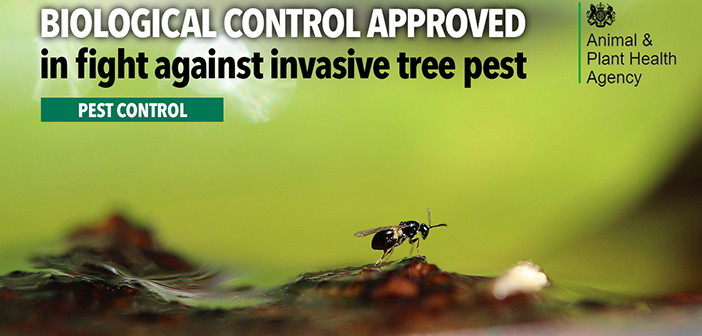The Animal and Plant Health Agency (APHA) has approved the release of a parasitoid wasp to tackle the Oriental Chestnut Gall Wasp has been approved in England.
The wasp, Torymus sinensis, is a natural biological control agent which is hoped will help reduce the spread of Oriental Chestnut Gall Wasp in England, to protect the health of sweet chestnut trees.
The species is established in several European countries and was discovered for the first time in the UK in June 2015 in Kent. Shortly afterwards it was found in a group of street trees in St Albans, Hertfordshire. It has since been found at a number of other sites, most of them in and around London and South-East England.
The wasp causes galls on the buds and leaves of sweet chestnut, which damage the tree. In high numbers, the gall wasp can weaken sweet chestnut trees and make them more vulnerable to other pests and diseases, including Sweet Chestnut Blight.
Nicola Spence, the APHA’s chief plant health officer, said: “Threats to sweet chestnut trees have increased as a result of tree pests and diseases such as Oriental Chestnut Gall Wasp and Sweet Chestnut Blight.
“The release of this biological control agent represents a huge step towards protecting the health of sweet chestnut trees and will further enhance the resilience of our treescape.”


